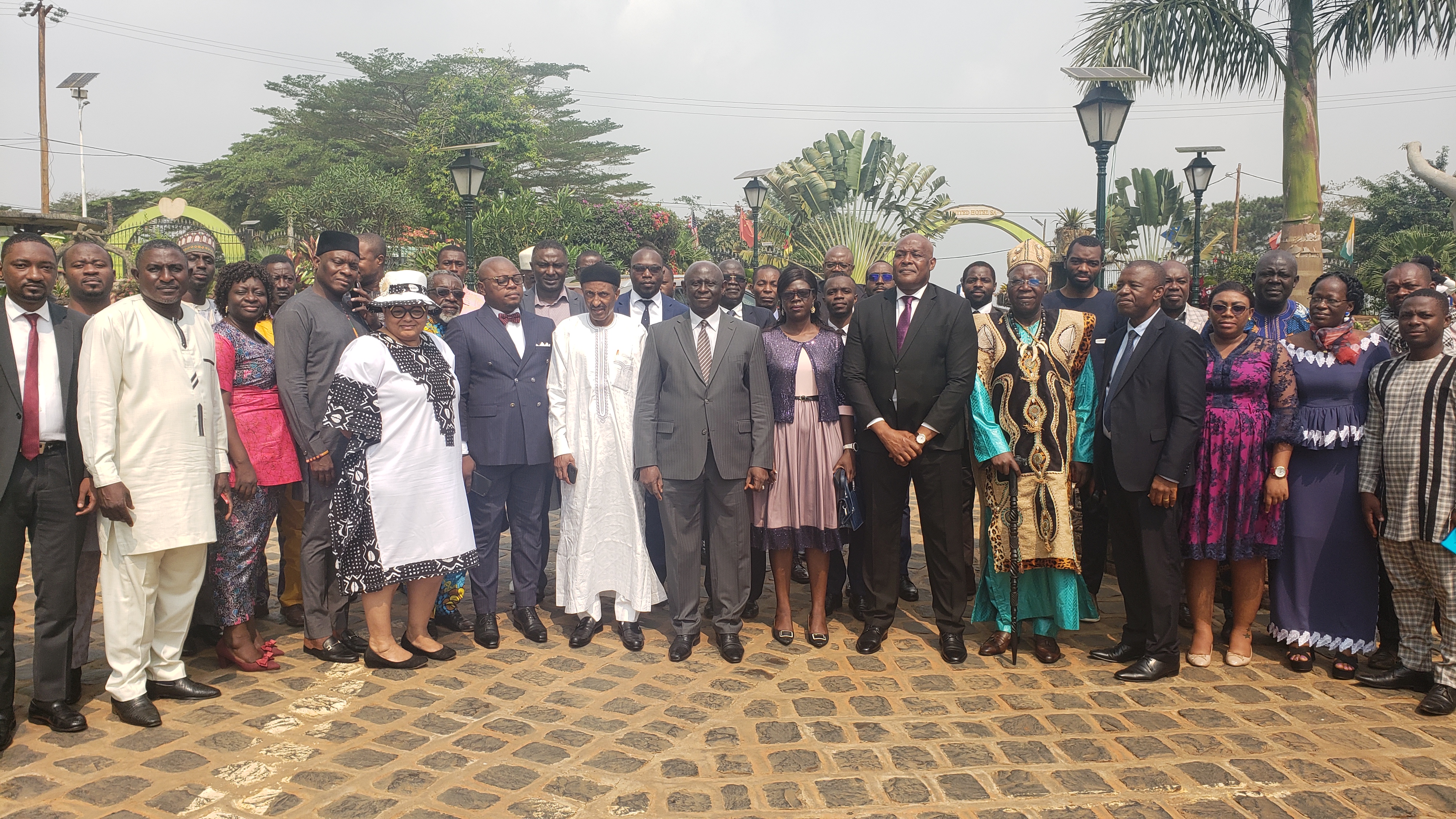
Presentation of the first Carbon Report of Cameroon
The National Observatory on Climate Change presented the first Carbon Report of Cameroon in a ceremony held at United Hotel of Mbankomo on the 30th of December 2022 and presided over by Mr. ENOH Peter AYUK, Chairman of the Board of Directors of NOCC, in the company of Prof. AMOUGOU Joseph Armathé, Director General of the National Observatory on Climate Change.
In order to benefit from climate finance as a compensatory measure in accordance with Articles 6 and 9 of the Paris Agreement, Cameroon must regularly produce Green House Gases inventory reports as well as its annual carbon sequestration potential. It is therefore within this framework that the National Observatory on Climate Change (NOCC) carried out the Greenhouse Gas inventory in the Agriculture, Forestry and other Land Use (AFOLU) sector in the Monomodal (Littoral and South West Regions) and the Bimodal (Centre, East and South Regions) rain forest agroecological zones and in the Energy sectors in Cameroon from 2010 to 2018.
The results obtained in the AFOLU sector in the bimodal and monomodal rainforest agroecological zones, show an annual average carbon sequestration potential of 440 549.88 GgCO2eq., with the bimodal zone having potentials than the monomodal rainforest zone. The results from the AFOLU sector, if valorized could bring in money to the state coffers worth at least twice what the pipeline brings to Cameroon.
On the other hand, results obtained from the energy sector, show that the transport category recorded the highest GHG emissions (17149.7 GgCO2 Eq), representing 55% of the total emissions (31216.5 GgCO2 Eq) in the energy sector over the period considered, followed by the energy industry category (8946.4 GgCO2 Eq), and other related categories, accounting for 45% of the total emissions. It should be noted that 2018 registered the largest quantity of GHG emissions (5488.9 GgCO2 Eq).
In other to ameliorate the different research results, it will be important to: update the ATLAS of the forest cover dynamics up to 2022; realize greenhouse gas inventory in the waste, industrial processes and product-use sectors from 2010-2022; carryout the GHG in the rest of the agroecological zones for the same period.
The National Observatory on climate change also used the occasion to showcase some of the results of her recent studies notably: the assessment of the economic cost of climate variability on the agricultural sector, in which appropriately 304 billion FCFA was lost due to the impacts of climate change; the adjusted climate models being used today by NOCC to forecast and to project climate parameters with a lot more precision in the five agroecological zones of Cameroon.
The ceremony witnessed the participation of key stakeholders: The Chairman and members of the Board of Directors of NOCC; sectoral administrations (MINEPDED, MINADER, MINFOF, MINEE, MINEPIA, MINFI…), Regional Council, Members of Parliament, ONACC, Development Partners (FAO, AFD, WWF, CUSO International…), the Academia and Civil Society Organizations.
It should also be noted that the 14th Ordinary Session of the Board of Directors met earlier on the 28th December 2022 under the auspices of the Board Chairman, Mr. ENOH Peter AYUK, during which NOCC's Performance Project and budget for the financial year 2023, balanced in revenue and expenditure at the sum of FCFA 1.057 130 175 (One billion and fifty-seven million one hundred and thirty thousand one hundred and seventy-five) was adopted.

